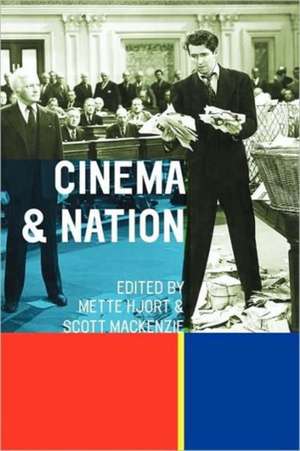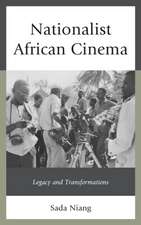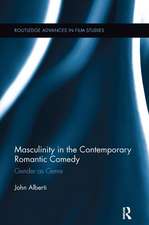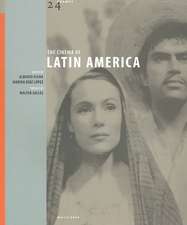Cinema and Nation
Editat de Mette Hjort, Scott MacKenzieen Limba Engleză Paperback – 24 aug 2000
In the first three Parts, contributors explore sociological approaches to nationalism, challenge the established definitions of 'national cinema', and consider the ways in which states - from the old Soviet Union to contemporary Scotland - aim to create a national culture through cinema. The final two Parts address the diverse strategies involved in the production of national cinema and consider how images of the nation are used and understood by audiences both at home and abroad.
| Toate formatele și edițiile | Preț | Express |
|---|---|---|
| Paperback (1) | 319.75 lei 3-5 săpt. | +25.29 lei 7-13 zile |
| Taylor & Francis – 24 aug 2000 | 319.75 lei 3-5 săpt. | +25.29 lei 7-13 zile |
| Hardback (1) | 1008.97 lei 6-8 săpt. | |
| Taylor & Francis – 24 aug 2000 | 1008.97 lei 6-8 săpt. |
Preț: 319.75 lei
Nou
61.18€ • 64.05$ • 50.63£
Carte disponibilă
Livrare economică 15-29 martie
Livrare express 01-07 martie pentru 35.28 lei
Specificații
ISBN-10: 0415208637
Pagini: 352
Ilustrații: 12 b&w photographs
Dimensiuni: 156 x 234 x 17 mm
Greutate: 0.52 kg
Ediția:1
Editura: Taylor & Francis
Colecția Routledge
Locul publicării:Oxford, United Kingdom
Public țintă
UndergraduateNotă biografică
Mette Hjort is Associate Professor in the Department of Languages and Intercultural Studies, Aalborg University. Scott MacKenzie is Lecturer in Film and Media Studies at the School of English and American Studies, University of East Anglia, Norwich.
Cuprins
Introduction 1. The Sociology of Nationalism 2. The Concept of National Cinema 3. Film Policy, Nationalism, and the State 4. The Production of National Images 5. The Reception of National Images
Descriere
Ideas of national identity, nationalism and transnationalism are now a central feature of contemporary film studies, as well as primary concerns for film-makers themselves. Embracing a range of national cinemas including Scotland, Poland, France, Turkey, Indonesia, India, Germany and America, Cinema and Nation considers the ways in which film production and reception are shaped by ideas of national belonging and examines the implications of globalisation for the concept of national cinema.
In the first three Parts, contributors explore sociological approaches to nationalism, challenge the established definitions of 'national cinema', and consider the ways in which states - from the old Soviet Union to contemporary Scotland - aim to create a national culture through cinema. The final two Parts address the diverse strategies involved in the production of national cinema and consider how images of the nation are used and understood by audiences both at home and abroad.






















